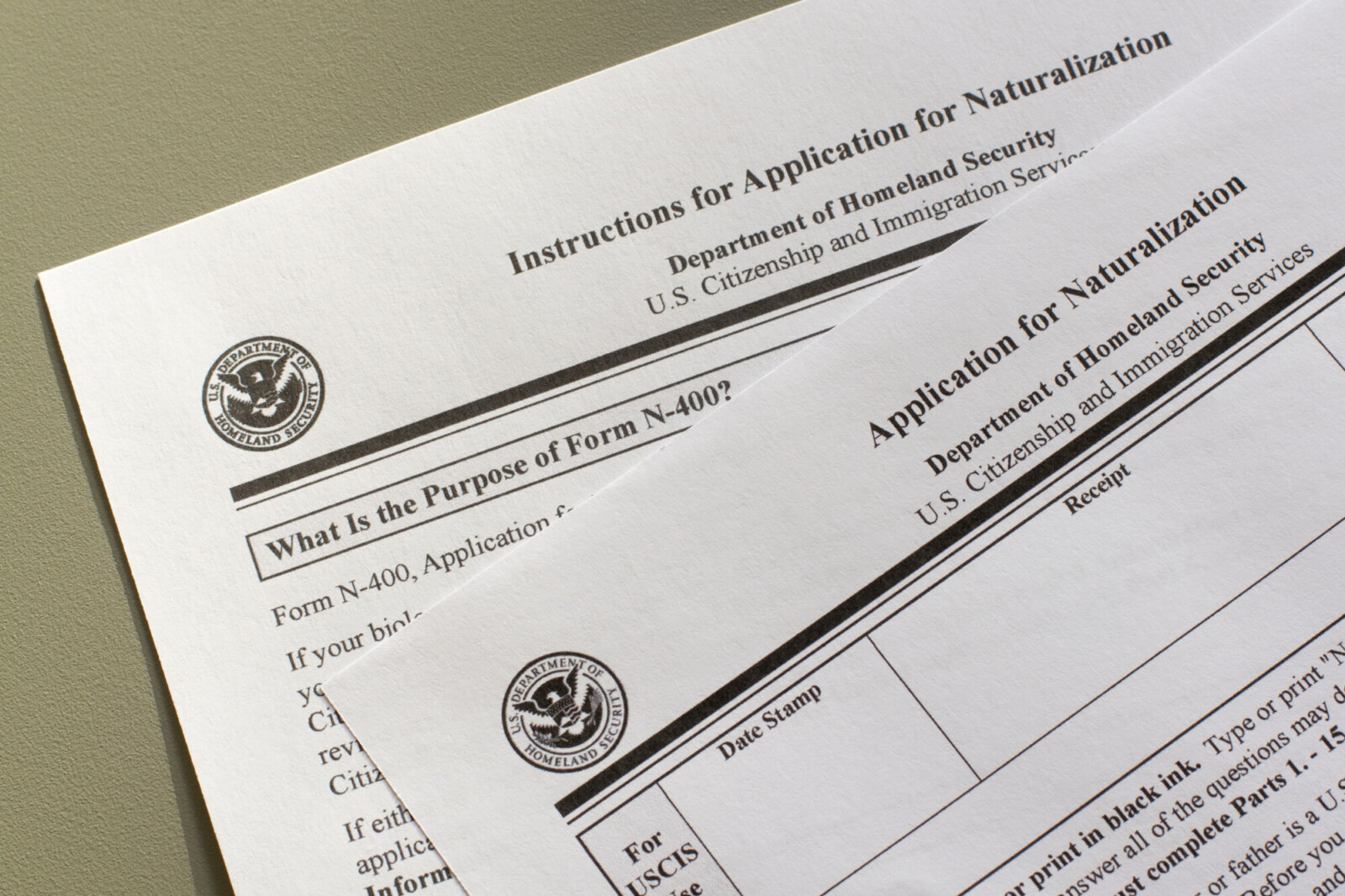
Find Out if You Can Become a Citizen
Naturalization is the process by which an adult lawful permanent resident can apply to become a U.S. citizen.
Naturalization requirements:
- You must be 18 years of age or older.
- You must show that you have been a lawful permanent resident of the United States (informally known as having a green card) for at least five years (or three years if you are married to a United States citizen).
- You must have continuous residence in the U.S. for at least five years (or three years if you are married to a United States citizen).
- You must be physically present in the U.S. for at least half that time.
- You must be a person of “good moral character.” This means not having certain problems with the police or other authorities.
- You must be able to read, write, and speak basic English.*
- You must have a knowledge and understanding of the fundamentals of U.S. history and government.
- You must take a loyalty oath and support the Constitution and form of government of the United States.
*Note: Some people do not have to speak English at all or answer any questions about United States history and civics, depending on many factors such as their age, time in the U.S. as a green card holder, or if they have a disability. For more information about language exceptions, disability exceptions, and accommodations, click here.

In addition to these requirements, you must also:
- Show that you live in the state listed on your application for at least three months before filing.
- Register for military service if you are a male green card holder between 18 and 26 years old. However, if you did not register, you can still apply for naturalization by providing a written explanation and proof of registration with the Selective Service System.
These are general requirements, but there might be other ways to obtain citizenship, depending on your situation. For example, people who serve (or are serving) in the U.S. Military may be eligible to naturalize without first becoming a lawful permanent resident. Or, children of a U.S. Citizen may qualify for citizenship. For more information about the path to citizenship, visit the U.S. Citizenship and Immigration Services website.
Please seek legal assistance in your area if you have any questions about your immigration case. If you apply for naturalization and have certain problems, your application could be denied. You could even lose your green card and be deported!
Naturalization and Citizenship Resources
If you would like to learn more about becoming a citizen, check out these trusted resources.
Find in-person help by connecting with one of the New Americans Campaign partners around the country.
English/Spanish (NALEO Educational Fund): 888-839-8682
Chinese (Asian Americans Advancing Justice Southern California): 800-520-2356
Korean (Asian Americans Advancing Justice Southern California): 800-867-3640
Tagalog (Asian Americans Advancing Justice Southern California): 855-300-2552
Thai (Asian Americans Advancing Justice Southern California): 800-914-9583
Find out if you are eligible with Citizenshipworks, a free, safe, and simple online tool that guides you through the application.
Review resources from the United States Citizenship and Immigration Services (USCIS) to learn more about becoming a citizen, and access study and application materials.
